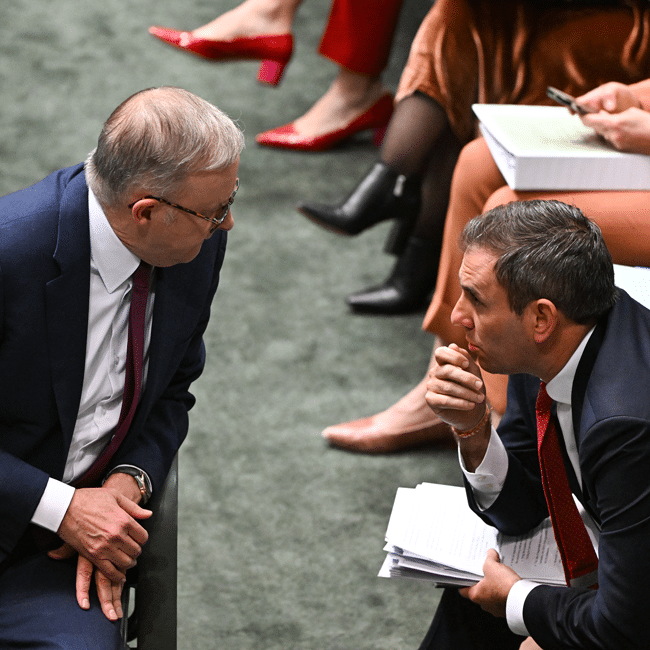
Hey liberals, do you like this hegemony of ours? Then you’d better damn well act like it
Opinion + AnalysisPolitics + Human Rights
BY Alexandre Lefebvre 6 DEC 2024
In September 2016, just before that year’s United States presidential election, The Claremont Review of Books published an essay that became an instant classic. It was titled “The Flight 93 Election”, and its message was stark. If voters didn’t rush the cockpit and come out for Donald Trump in numbers, then traditional values and American interests would be flown into the ground. “If you don’t try, death is certain”, was its rallying cry.
Why were conservatives so scared? Their panic reflected a real insight: for decades, liberalism — its moral values and sensibilities — had been gaining traction in American (and, more broadly, Western) culture. The worry wasn’t so much about liberalism taking over politics. On paper, at least, and despite gross and systemic failures, the United States has always been a constitutional liberal democracy. The problem was the slow and steady creep of liberal values into areas of life completely remote from politics. As a prominent conservative scholar put it:
“Liberalism is thus not merely, as is often portrayed, a narrowly political project of constitutional government and juridical defence of rights. Rather, it seeks to transform all of human life and the world.”
I’m a liberal and I believe conservatives are absolutely right on this point. Liberalism is hegemonic and liberals are the hegemons of the Western world. But that hegemony won’t last if we keep carrying on as we are.
If I had to sum up the 2024 election in a headline, it would be: “This Just In: Actually Existing Liberalism Sucks”. Liberalism is an ideology rooted in a core moral concept — fairness. It’s easy to lose sight of how extraordinary liberalism is. It teaches every single one of its members that they matter, and that every citizen, you and me included, has a legitimate expectation to be treated reasonably and fairly by the basic institutions of society. Fairness and reciprocity for all are the radical moral adventure of liberalism, and I believe it is a beautiful ideal capable of inspiring the enduring support of large majorities.
The trouble is that liberals in most liberal democracies — maybe even especially in the United States — do two things that almost seem designed to inspire resentment: they fail to take inequality seriously, and they moralise.
Consider how many times we heard the term “vibecession” in the run-up to the election. It played nonstop in The New York Times, essentially gaslighting the American public into believing that the cost of living was in their heads or, at worst, a thing of the past. But as Bernie Sanders posted on X, and reiterated in a justifiably prickly post-election podcast with the Times, “It should come as no great surprise that a Democratic Party which has abandoned working-class people would find that the working class has abandoned them.”
History has much to teach us on this point. Late in life, Alexis de Tocqueville — the greatest booster of American democracy — wrote an extraordinary post-mortem on the collapse of a social and political order called The Ancien Régime and the Revolution (1856). His key insight is especially relevant today: a regime is doomed the moment it begins to be hated on a micro-level, when grievances become embedded in the interactions and practices of everyday life. “F**k you”, the average person might think when eggs cost twice as much, or “Jesus Christ!” when the inspection line for a sub-par two-bedroom apartment stretches around the block.
The United States is not unique in this respect. In fact, every single government in the Western democratic world that has faced an election recently has been replaced — whether they’ve switched from liberal to conservative or conservative to liberal. But liberalism, which prides itself on fairness and equal opportunity, is especially vulnerable to this kind of resentment when it falls short of its promises.
Which brings me to the second point of liberal folly: we moralise. Once again, let me pick on the standard bearer of correct liberal opinion, The New York Times. In the two weeks following the election — though, honestly, I could have picked any week within the past ten years — it ran two opinion pieces, one from the right and one from the left wings of its liberal factions, that exemplify the problem rather than the solution. From the right, David French argues that Trump’s 2025 administration is already poised to implode under the weight of its own incompetence and corruption. From the left, Roxane Gay declares a moral imperative to reject the Republican worldview entirely, writing, “We must refuse to participate in a mass delusion”.
Come on. Liberals just got their asses handed to them two weeks ago. Our first impulse cannot be to scold and denounce — that’s exactly why liberals are hated. We can be snobs, and snobbery is one of the worst traits imaginable. It’s a particular kind of pleasure rooted in making inequality felt and hurt. If that’s the only solace liberals can offer themselves right now, we’re in serious trouble. The cockpit liberals need to rush isn’t the wider electorate but an elite orthodoxy that insists it has all the practical and moral answers.
What should liberals do? First, we need to chill. Liberalism remains culturally and politically hegemonic in the West, and Rome wasn’t destroyed in a day. Second, we need to pivot. People will, of course, have different opinions about the way forward. But if I could issue a categorical imperative for liberals, it would be this: keep striving for a country built for everyone, and don’t talk down to those who think differently. Third, we need to listen. To tip my own hand, the best proposal I’ve heard for how liberals should regroup comes from Sohrab Ahmari — himself no friend of liberalism — in a post on X. Here it is in full:
“Imagine a left without the freaky pronoun brigade; that’s reasonably restrictionist on the border (where most voters are); that backs policing and caters to sociality instead of the antisocial; but at the same time is populist on the economy. That’s … pretty attractive.”
That sounds like Trumpism, some would say. I think not, but this isn’t the place to make my case.
The point is that liberals must stop retreating into smugness and start confronting the realities that have alienated so many. Liberalism’s promise of fairness is worth fighting for, but only if we’re willing to embody it, not just preach it.
If we want to hold onto this hegemony of ours, we need to act like it’s worth saving. And that means changing — fast.
This article was originally published by ABC Religion and Ethics.
Image by Andreas Praefcke.
Ethics in your inbox.
Get the latest inspiration, intelligence, events & more.
By signing up you agree to our privacy policy
You might be interested in…
Opinion + Analysis
Politics + Human Rights
An angry electorate
Opinion + Analysis
Politics + Human Rights, Business + Leadership
Political promises and the problem of ‘dirty hands’
Big thinker
Politics + Human Rights, Relationships
Big Thinker: Mary Wollstonecraft
Opinion + Analysis
Politics + Human Rights, Relationships




